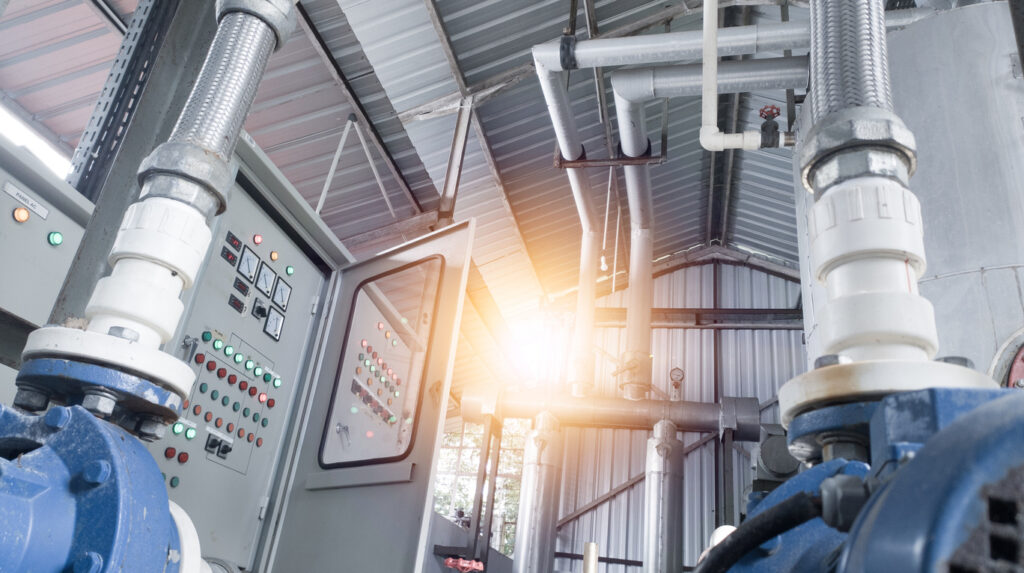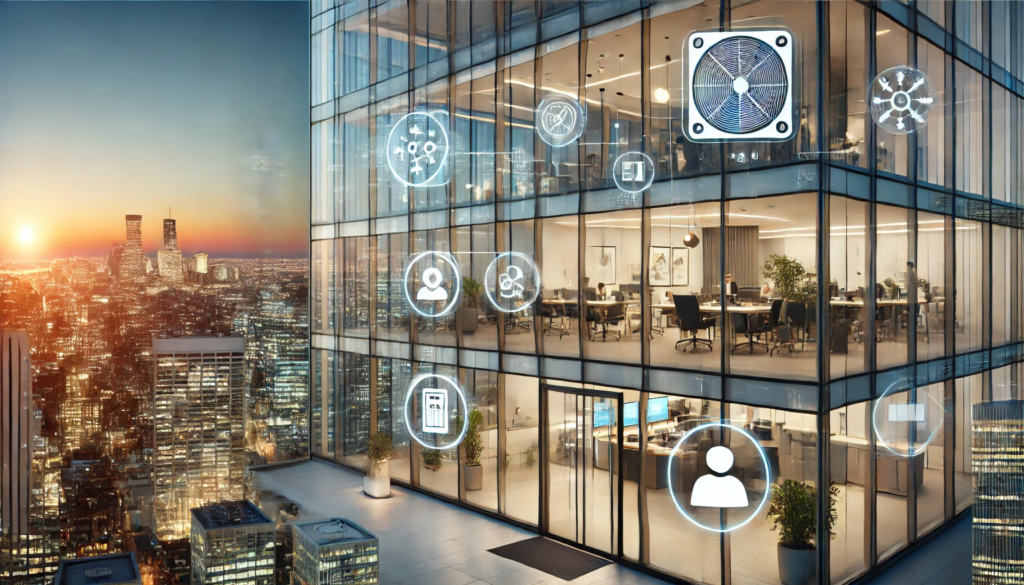In the quest to reduce carbon footprints and achieve sustainability goals, commercial and industrial buildings have a powerful ally: smart HVAC schedulers. This technology is more than a digital clock for your heating, ventilation, and air conditioning systems—it’s a strategic tool that can lead to significant energy conservation and pave the way for green certifications. As we delve into the transformative potential of smart HVAC schedulers, we’ll explore how they contribute to energy efficiency and environmental sustainability.
The Imperative for Energy Efficiency
Buildings are among the largest consumers of energy globally, accounting for nearly 30% of total energy use and 26% of greenhouse gas emissions, according to the International Energy Agency (IEA). With climate change accelerating, improving energy efficiency in buildings is no longer a choice but a necessity. The U.S. Department of Energy highlights that efficient energy use in buildings can significantly reduce electricity costs and mitigate environmental impact (U.S. DOE).
Buildings are among the largest consumers of energy globally, accounting for nearly 30% of total energy use and 26% of greenhouse gas emissions.
—International Energy Agency
The Role of Smart HVAC Schedulers
Smart HVAC schedulers play a pivotal role in this energy efficiency drive. Traditional HVAC systems often run at full capacity, irrespective of actual occupancy or usage. Smart schedulers adjust heating and cooling based on real-time data, ensuring that energy is used judiciously and minimizing waste. For example, during non-peak hours, energy use can be reduced, ramping up just before the building is occupied to ensure comfort without unnecessary expenditure.
One of the most impactful applications is after-hours scheduling. This involves turning down or turning off HVAC systems when the building is unoccupied or allowing tenants to order HVAC during non-business hours. Imagine an office building that operates HVAC systems at full blast even when the last employee has left for the day. Smart schedulers eliminate this inefficiency while giving tenants more work flexibility.
Moreover, smart HVAC schedulers can integrate with an existing BMS, leveraging data from occupancy sensors, weather forecasts, and historical usage patterns. This holistic approach ensures that HVAC systems operate only when and where needed, drastically cutting down energy wastage.

Achieving Green Certifications
Green certifications such as LEED (Leadership in Energy and Environmental Design) and BREEAM (Building Research Establishment Environmental Assessment Method) are benchmarks for sustainable buildings. Smart HVAC schedulers can be instrumental in achieving these certifications by enhancing energy performance and indoor environmental quality while reducing embodied carbon.
Energy performance is a critical criterion for green certifications. By optimizing HVAC schedules, buildings can reduce their energy consumption significantly. The U.S. Department of Energy’s 2017 report underscores the impact of advanced building controls, including smart HVAC schedulers, in realizing energy savings of up to 29% (U.S. DOE).
Energy performance is a critical criterion for green certifications.
Maintaining optimal indoor air quality and thermal comfort is essential for green certifications. Smart schedulers ensure that HVAC systems respond dynamically to maintain ideal conditions, improving occupant well-being and meeting certification requirements. The World Green Building Council emphasizes the need to address embodied carbon in building materials and operations (WorldGBC). By reducing operational energy use through efficient HVAC scheduling, buildings can significantly lower their overall carbon footprint, contributing to global decarbonization efforts.
Consider a large office complex in a metropolitan area. The building management decided to implement smart HVAC schedulers as part of a broader energy efficiency initiative. The results were remarkable: the building reduced its HVAC energy consumption by 25%, translating to significant cost savings. Occupant complaints about temperature fluctuations decreased by 40%, thanks to more consistent and responsive climate control. Moreover, the energy improvements contributed to the building earning a LEED Gold certification, enhancing its marketability and tenant satisfaction.

The Technology Behind Smart HVAC Schedulers
Smart HVAC schedulers are powered by advanced technologies like machine learning, IoT, and cloud computing. These technologies enable predictive maintenance by analyzing data trends to predict and alert maintenance needs before they become critical, reducing downtime and prolonging equipment life.
Machine learning algorithms allow schedulers to adapt to changing patterns of occupancy and external weather conditions, continually optimizing HVAC performance. Additionally, cloud-based platforms provide facility managers with real-time insights and control over HVAC systems from anywhere, facilitating prompt adjustments and troubleshooting.
The Business Case for Smart HVAC Schedulers
Adopting smart HVAC schedulers is not just an environmental imperative but also a sound business decision. Reduced energy consumption directly lowers utility bills, and over time, the savings can offset the initial investment in smart scheduling technology. Energy-efficient buildings with green certifications often command higher rental and resale values, attracting tenants and buyers who prioritize sustainability.
Moreover, as governments impose stricter energy efficiency standards, smart HVAC schedulers help buildings stay compliant, avoiding potential fines and penalties. In an increasingly eco-conscious market, buildings that demonstrate a commitment to sustainability are better positioned to meet regulatory requirements and appeal to environmentally aware stakeholders.
Conclusion
Smart HVAC schedulers represent a significant leap toward sustainable building management. By optimizing energy use, improving indoor environmental quality, and supporting green certifications, they help reduce the carbon footprint of commercial and industrial facilities. For system integrators and facility managers, the adoption of this technology is a strategic move that promises substantial economic and environmental benefits.
In the grand scheme of things, smart HVAC schedulers are more than just a tool—they are a critical component in the global effort to achieve a greener, more sustainable future. Embrace this technology today and take a significant step toward making our built environments more energy-efficient and environmentally friendly.


